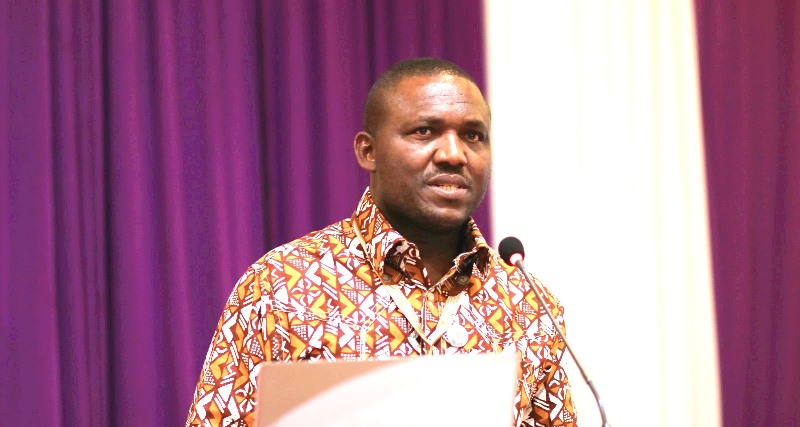
As workers globally celebrated this year’s May Day, otherwise known as Workers’ Day, yesterday, the need to prioritise social justice and workers’ rights informed the crux of the day.
Noting that the rights of workers have been trampled upon, vis-a-vis inflation, conflict, and food, as well as fuel supply shocks, the unions globally maintained that the need for nations to prioritise social justice was now.
There is no gainsaying that globally, real wages have fallen, poverty is rising, and inequality seems more entrenched than ever.
This is even as enterprises have been hard hit, while many could not cope with cumulative effects of recent unexpected events.
Not left behind too are the small, medium and micro-enterprises, which were particularly affected, and many have ceased operations.
In Nigeria, celebrating under the theme: ‘Workers’ Rights and Socioeconomic Justice’, the leadership of the Nigeria Labour Congress (NLC) and the Trade Union Congress of Nigeria (TUC), led by Joe Ajaero, and Festus Osifo, said there was the need to inform the public on the nexus between the welfare of workers, socioeconomic rights and privileges.
They noted that the dynamics of workers’ rights shape the character and quality of life within the socioeconomic framework.
According to them, workers’ welfare is central to the achievement of socioeconomic justice, which is key to national and global sustainability.
They argued that the realisation that without crafting a more responsible and creative way of organising production and distribution of global resources, may lead upon a collective journey to doom.
The labour leaders said the need to foster a more inclusive world that would build a new globe that enthrones shared responsibilities and shared outcomes built on equity was paramount.
“Equity, fairness and Justice underpin the survival of societies and create resilience for nations in the midst of upheavals and turbulence. It provides a belief thus a buy-in for all the critical segments of the society allowing continuous solidarity and cohesion within the disparate groups of the society. Every nation needs this criticality to make progress. Nigeria it should be noted needs the presence of this mass to jump-start the process of development,” they said.
They called on the need to have a zero tolerance for parochialism and greed, especially that which pertains to self-interests and desires.
According to the duo, provisioning for the masses and workers is pivotal and should be given supremacy.
“Poor wages exclude, increased decent-work deficits alienate, abuse of workplace rights and privileges dishonours, unpaid salaries strip workers of their humanity, violation of rules of engagement defiles, harassment and intimidation of workers humiliates and refusal to grant access to social infrastructure for workers reduces.
“Poor nutrition, increasing number of working poor and restricted access to decent housing, health and education combine to dehumanise and subjugate the rights of Nigerian workers. Subjugating workers rights, subjugates the entire society.
“That is why we keep saying that it is unfortunately the character of leadership that determines the fulfillment of socioeconomic justice. It is therefore our responsibility to ensure that the right characters access leadership position so as to guarantee and protect the rights of workers as an adjunct of socioeconomic justice.
This is just as the Nigeria Employers’ Consultative Association (NECA) in its May Day message, said the need to continue to protect not only workers’ rights but also human and enterprise rights could not be overemphasized.

Director-General of NECA, Adewale-Smatt Oyerinde, stated that workers’ rights encompass living wages, decent work, access to medical care, safety and health at work, bridging gender gaps and freedom from discrimination, among others.
According to him, these rights thrive in an environment that promotes socioeconomic justice.
He said for wealth to be created and equitably distributed, there must be a hospitable, peaceful and productive environment.
To this end, he said no effort should be spared in promoting and defending institutions that have been created to advance industrial harmony and social dialogue.
Already, the International Labour Organisation (ILO) Director-General of Gilbert Houngbo, in his message, said for countries to address this, policies and actions must be human-centered, to allow people to pursue both their material well-being and their spiritual development in conditions of freedom and dignity, economic security and equal opportunity.
He said this means focusing on inequality, poverty alleviation and core social protection.
The ILO boss said the most effective way to do this is by providing quality jobs so that people can support themselves and build their futures.
While calling for a global coalition for social justice, he said the move would create a platform to bring together a broad range of international bodies and stakeholders.

This, he stressed, would position social justice as keystone of the global recovery so that it is prioritised in national, regional and global policies and actions.
He said: “It means addressing the long-term structural transformations of our time; ensuring that new technology creates and supports employment; pro-actively facing the challenges of climate change and ensuring we offer the jobs, skills training and transition support necessary for workers and businesses to benefit from the new low-carbon era; treating demographic changes as a ‘dividend’ rather than a problem, with supporting action on skills, migration and social protection, to create more cohesive and resilient societies.
“We also need to reassess and refashion the architecture of our social and economic systems, so that they support the change towards social justice, rather than continuing to channel us into a policy ‘doom loop’ of inequality and instability.
“We must reinvigorate labour institutions and organisations so that social dialogue is effective and vigorous. We must review laws and regulations affecting the world of work so that they are relevant and up-to-date and able to protect workers and support sustainable businesses.”












